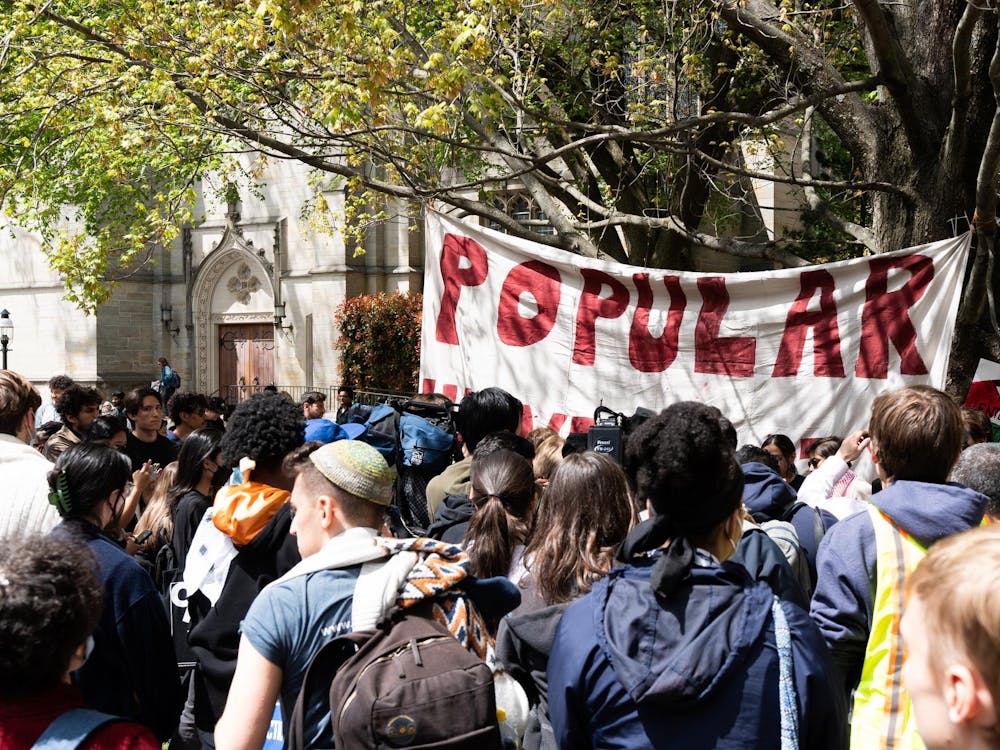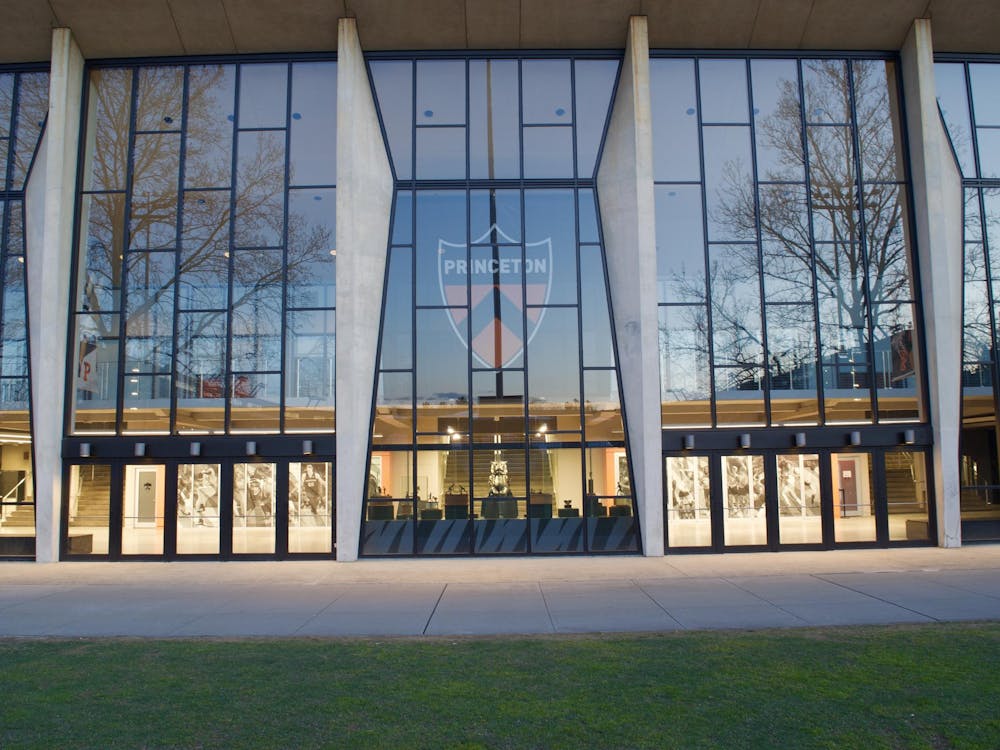Three Office of Sustainability internsworking on the Drink Local Initiativewill present a plan of action toreduce waste and wasted energy from bottled water to University President Christopher Eisgruber ’83 in three weeks.
The presentation is being made as the University shapes its 2016 campus plan and possibly its 30-year outlook.
The initiative was launched in 2009 when the Office of Sustainability started giving out water bottles to all incoming freshmen, Director of the Office of Sustainability Shana Weber said. It has since expanded to include retrofitting water fountains on campus and building new water fountains in more accessible spaces.
Weber said there are over 200 filtered water-refilling stations that the plumbing shop in the University Facilities office has installed as part of the Drink Local initiative.Each station is on a schedule to change its filter as well.
The interns said they are planning an educational campaign to change students’ behaviors regarding bottled water. However, they noted that they think banning bottled water is unrealistic and won’t solve the problem, although a goal is to eliminate bottled water from late meal.
One of the interns, Sofia Hiltner ’17, said that at other universities where they banned bottled water, students resorted to buying it in bulk for their rooms or drinking bottled sodas or juices.
“In the end, this becomes a psychological, social psychology project to incentivize certain behaviors,” Hiltner said. “To show it’s not inconvenient to have a reusable water bottle.”
Efforts have included giving every freshman reusable water bottles. However, Weber noted that according to a survey, only half of the freshmen still have their water bottles at the end of the year.
Drink Local 2015 Survey report, provided by intern Dora Demszky ’17, found that 67.6 percent of students receive a reusable water bottle upon arrival at the University, but only 34 percent of students still have their water bottle. Moreover, 75.3 percent of students reported they never use their Drink Local reusable water bottle.
“Everyone has to understand for a change to be sustainable,” Hiltner said.
The interns said that last year’s blind taste tests revealed that there is no discernible difference between bottled water and tap water.

“Given that tap water is regulated, the cost of bottled water is enormous,” Weber said. “When you go to the register, the amount you’re paying for bottled water is more than what you’d pay for the same amount of gasoline.”
Tap water costs $0.0004 per gallon versus $1.22 to $7.50 per gallon of bottled water, Weber noted.
“It’s astonishing that we’re willing to [spend that much],”Weber said. “It’s really a superb marketing campaign.”
The interns said they have not been able to obtain numbers from Campus Dining Services regarding how much bottled water is purchased or sold.
Moreover, tap water can prove safer than bottled water because the latter can legally contain higher amounts of substances such as iron and arsenic. According to intern RekaZempleni ’16, the U.S. Food and Drug Administration regulates bottled water while the U.S. Environmental Protection Agency regulates tap water.
Bottled water manufacturers do not have to reveal their production and cleaning processes, and their labeling does not reveal all information about “levels of potentially harmful contents or the method of treatment,” she added.
“[The FDA has] thresholds for things in the water but bottled water is a trademark,” Zempleni said. “There are trade secrets, even with FDA regulations. You can’t really know how they process the water, so you can’t exactly know what’s in bottled water and can only hope that they meet the FDA standards.”
Beyond bottled water, the interns report that creating sustainable habits with students requires a shift at the University.
“On campus, you find all these contradictions,” Hiltner said. “You see the golf carts that use a lot of gas and this sense of overabundance that isn’t really justified. It doesn’t really reflect a lifestyle you can have elsewhere in the world.”
Weber said she hopes that campus sustainability initiatives at the University and other campuses will have a broader impact. In many ways, the Drink Local campaign is building on itself and its messaging is improving, Weber said.
“It will take persistent effort,” Weber said. “Especially if we’re serious about demonstrating how to live more sustainably and using Princeton’s campus as an example of that.”








